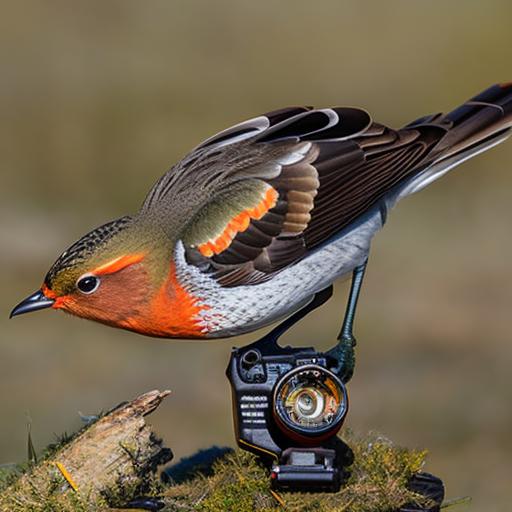Your cart is currently empty!

dove hunting essentials

Dove hunting is a popular sport enjoyed by many outdoor enthusiasts. It combines the thrill of the hunt with the beauty of nature, making it a favorite pastime for hunters of all ages. Dove hunting season typically takes place in the late summer and early fall, when doves are migrating and their populations are at their highest. In this article, we will explore the importance of proper dove hunting gear, choosing the right shotgun, essential safety tips, understanding dove behavior and migration patterns, the best hunting locations and times of day, preparing your hunting dog, effective hunting techniques, cleaning and cooking dove meat, hunting laws and regulations, and tips for a successful dove hunting trip.
Key Takeaways
- Proper dove hunting gear is important for a successful and safe hunting trip.
- Choosing the right shotgun for dove hunting can improve accuracy and reduce recoil.
- Essential safety tips for dove hunting include wearing eye and ear protection and being aware of your surroundings.
- Understanding dove behavior and migration patterns can help hunters locate the best hunting spots.
- The best times of day for dove hunting are early morning and late afternoon, and the best locations are near water and food sources.
The Importance of Proper Dove Hunting Gear
Having the right gear is crucial for a successful dove hunt. One essential piece of gear is a hunting vest, which allows you to carry your shotgun shells, water, snacks, and other necessary items. A good hunting vest should have plenty of pockets for easy access to your gear. Another important item is shotgun shells. It is recommended to use 7 ½ or 8 shot shells for dove hunting. These smaller shot sizes are effective for hitting fast-moving targets without damaging the meat.
Decoys are also an important part of dove hunting gear. They can help attract doves to your hunting area by creating the illusion of a flock of doves feeding on the ground. Decoys should be placed strategically around your hunting area to create a realistic scene. Additionally, camouflage clothing is essential for blending in with your surroundings and not spooking the doves. Opt for clothing that matches the environment you will be hunting in.
Choosing the Right Shotgun for Dove Hunting
When it comes to choosing a shotgun for dove hunting, there are several factors to consider. The most common types of shotguns used for dove hunting are pump-action and semi-automatic shotguns. Both types are reliable and effective for shooting doves. It is important to find a shotgun that fits you well and feels comfortable to shoot. The weight of the shotgun is also an important consideration. A lighter shotgun is easier to carry for long periods of time, but a heavier shotgun may provide better stability and accuracy.
Another factor to consider is the gauge of the shotgun. The most popular gauges for dove hunting are 12 gauge and 20 gauge. The 12 gauge is more powerful and has a larger shot capacity, while the 20 gauge is lighter and has less recoil. Ultimately, the choice between the two gauges comes down to personal preference and comfort.
Essential Safety Tips for Dove Hunting
Safety should always be the top priority when participating in any hunting activity. When it comes to dove hunting, there are several important safety tips to keep in mind. First and foremost, always point your gun in a safe direction. This means keeping the muzzle pointed towards the ground or in a direction where there are no people or animals.
It is also crucial to wear eye and ear protection while hunting. This will protect your eyes from any debris or pellets that may be kicked up during shooting, as well as protect your ears from the loud noise of gunfire. Additionally, always be aware of your surroundings and know where other hunters are located. Communication is key to avoid any accidents or misunderstandings.
Understanding Dove Behavior and Migration Patterns
Understanding dove behavior and migration patterns can greatly increase your chances of a successful hunt. Doves are social birds that often travel in flocks, so it is important to locate areas where they congregate. Doves are also attracted to open fields with access to water sources, such as ponds or streams.
Doves have predictable migration patterns, which can vary depending on the region. They typically migrate south for the winter and return north in the spring. Knowing when doves are likely to be in your area can help you plan your hunting trips accordingly. Keep an eye on local weather patterns and consult with experienced hunters or wildlife experts to determine the best times to hunt.
The Best Dove Hunting Locations and Times of Day
When it comes to dove hunting, location is key. Look for areas with open fields, agricultural fields, or areas with a good food source for doves. Doves are attracted to areas with sunflowers, wheat, corn, or other crops that provide them with a food source. Scouting the area before your hunt can help you identify the best locations for setting up your decoys and blinds.
The best times of day to hunt for doves are early morning and late afternoon. Doves are most active during these times as they search for food and water. Setting up near a water source or a feeding area can greatly increase your chances of success. It is also important to be patient and wait for the doves to come to you. Avoid excessive movement or noise that may scare away the birds.
Preparing Your Hunting Dog for Dove Season
Having a well-trained hunting dog can greatly enhance your dove hunting experience. A hunting dog can help retrieve downed birds, locate wounded birds, and flush out birds from hiding spots. It is important to start training your dog well in advance of dove season to ensure they are prepared.
Basic obedience training is essential for any hunting dog. They should be able to follow commands such as sit, stay, and come when called. Retrieving training is also important, as your dog will need to retrieve downed birds during the hunt. Introduce your dog to the sound of gunfire gradually and reward them for remaining calm.
Techniques for Effective Dove Hunting
There are several techniques that can be used for effective dove hunting. One technique is decoy placement. Set up your decoys in a realistic manner, mimicking a flock of doves feeding on the ground. Place them in open areas where doves are likely to land. It is also helpful to use a dove call to attract doves to your hunting area. The call mimics the sound of doves and can help draw them in.
When shooting at doves, it is important to lead the bird properly. Doves are fast flyers, so you need to aim ahead of the bird to compensate for its speed. Practice your shooting skills before the hunt to improve your accuracy. It is also important to be patient and wait for the right shot. Avoid taking shots that are too far away or at birds that are flying directly at you.
Cleaning and Cooking Dove Meat
After a successful dove hunt, it is important to properly clean and prepare the dove meat for cooking. Start by plucking the feathers from the bird, being careful not to tear the skin. Once the feathers are removed, clean out the body cavity and remove any remaining feathers or debris.
Dove meat is known for its rich flavor and tender texture. It can be prepared in a variety of ways, including grilling, roasting, or pan-searing. One popular recipe is bacon-wrapped dove breasts. Simply wrap each dove breast with a slice of bacon and secure with a toothpick. Grill or pan-sear until the bacon is crispy and the dove meat is cooked through.
Dove Hunting Laws and Regulations
It is important to familiarize yourself with the laws and regulations regarding dove hunting in your area. These laws are in place to protect wildlife populations and ensure a sustainable hunting experience. Some common laws and regulations include bag limits, hunting seasons, and required licenses or permits.
Bag limits specify the number of doves that can be harvested per day or per season. This helps prevent over-harvesting and ensures that there are enough doves for future generations of hunters. Hunting seasons are set to coincide with dove migration patterns and vary depending on the region. It is important to check with your local wildlife agency for specific dates and regulations.
Tips for a Successful Dove Hunting Trip
To ensure a successful dove hunting trip, it is important to plan ahead and be prepared. Start by scouting the area before your hunt to identify the best locations for setting up your decoys and blinds. Pack all the necessary gear, including your shotgun, shells, hunting vest, decoys, and any other items you may need.
Arrive at your hunting location early to set up your decoys and get settled in. Be patient and wait for the doves to come to you. Avoid excessive movement or noise that may scare away the birds. Stay alert and be ready to take a shot when the opportunity presents itself.
Dove hunting is a thrilling and rewarding sport that combines the excitement of the hunt with the beauty of nature. By having the right gear, understanding dove behavior, practicing safety, and using effective hunting techniques, you can increase your chances of a successful hunt. Remember to always follow hunting laws and regulations, and respect the environment and wildlife around you. So grab your gear, head out into the field, and experience the joy of dove hunting for yourself.
If you’re interested in dove hunting essentials, you might also find this article on “How to Hunt Squirrels with a Slingshot” intriguing. It provides valuable tips and techniques for those who prefer a more traditional and challenging approach to small game hunting. Check it out to enhance your hunting skills and expand your knowledge of different hunting methods. Read more
FAQs
What is dove hunting?
Dove hunting is a type of hunting where hunters shoot doves for sport or food.
What are dove hunting essentials?
Dove hunting essentials include a shotgun, ammunition, hunting license, camouflage clothing, a hunting vest, and a cooler for storing the harvested doves.
What type of shotgun is best for dove hunting?
A 12-gauge or 20-gauge shotgun is best for dove hunting.
What type of ammunition should be used for dove hunting?
Small shot sizes such as 7.5 or 8 are recommended for dove hunting.
Do I need a hunting license to go dove hunting?
Yes, a hunting license is required to go dove hunting in most states.
What should I wear for dove hunting?
Camouflage clothing is recommended for dove hunting to blend in with the surroundings. A hunting vest with pockets for ammunition and other essentials is also recommended.
What should I do with the harvested doves?
The harvested doves should be immediately placed in a cooler with ice to preserve the meat. They can be cleaned and prepared for cooking or frozen for later use.

Herb has been a longtime lover of the outdoors. Whether it be hunting, camping, fishing or just getting outside to reset. Proud father and animal lover. Bourbon anyone?

by
Tags:
Comments

Categories
- Big Game Hunting (301)
- Deer (202)
- Reviews (3)
- Shooting (16)
- Slingshot (1)
- Small Game Hunting (42)
- Upland Hunting (126)
- Waterfowl Hunting (3)





Leave a Reply